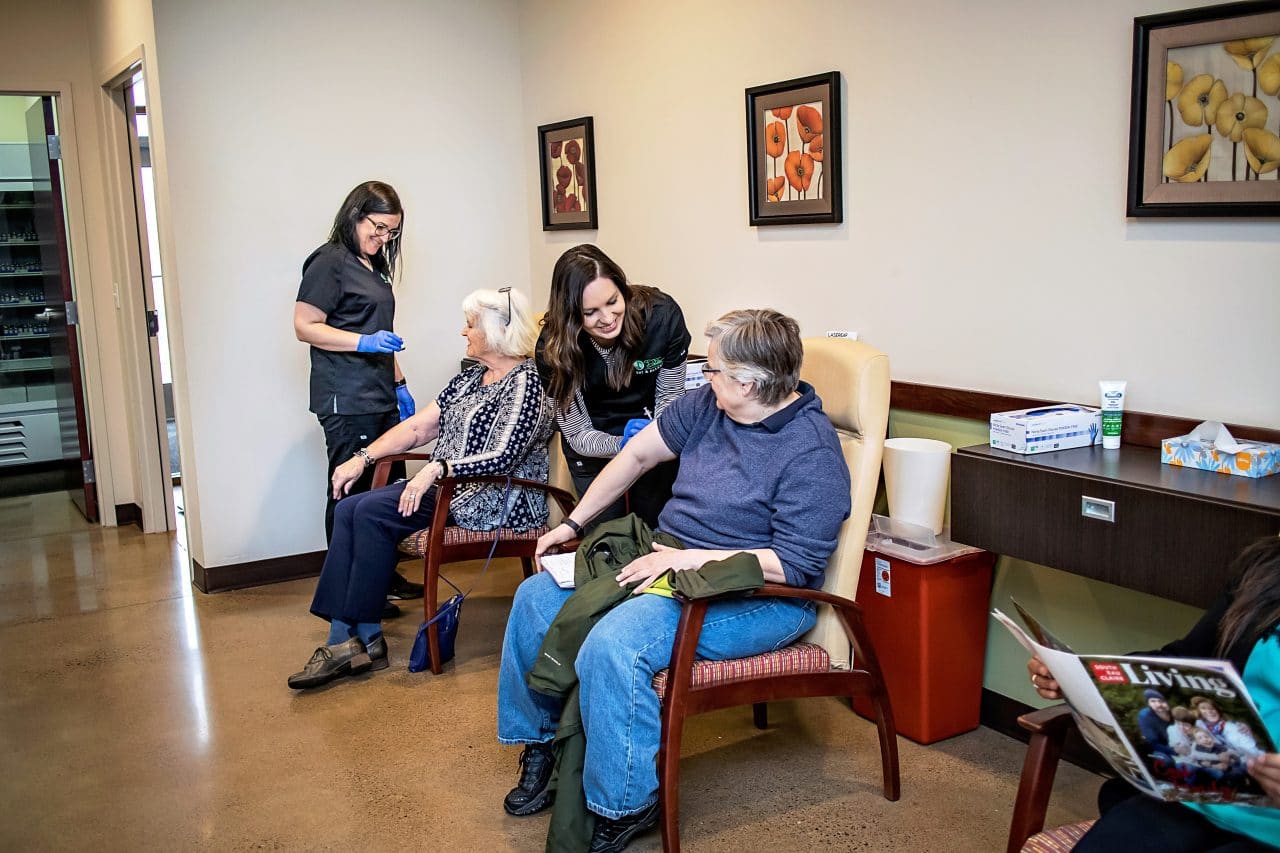From Pollens and Foods, to Dust and Dander, We’re Here to Help!


Written by:
Rima A. DeFatta, MD
Co-founder & President of DeFatta ENT & Allergy Member, American Academy of Otolaryngic Allergy
Allergies are among America’s most common and costly health problems. In allergy, the immune system overreacts to something that is not typically harmful to it. Allergy symptoms can disrupt a
person’s quality of life and also become the basis of more serious issues like recurrent infections or asthma. They can trigger chronic conditions affecting nearly any part of our bodies including the ears, nose, throat, lungs, skin, gut and bladder.
Symptoms may include:
- Chronic fatigue
- Concentration and learning problems
- Dizziness/poor balance
- Eczema, hives or skin rashes
- Reduced sense of smell or taste
- Hearing loss or ear ringing
- Postnasal drip, throat clearing, cough
- Raspy voice and breathing problems
- Snoring and sleep issues
- Nasal itching, rubbing or congestion
- Recurrent, unexplained nosebleeds
- Recurrent ear and sinus infections
Allergies can develop at any age or stage of life. The onset of noticeable symptoms may develop following an event that is stressful to the immune symptom, like a severe viral infection or even pregnancy.
A physician diagnoses allergy based on history and physical examination, and testing can confirm the specific allergens causing the problem. Skin tests are the most accurate tool for the evaluation of pollens, molds, dander, food, and even penicillin allergies. In some cases, blood testing may be recommended. Modern testing techniques minimize discomfort, and adults and children can be tested safely. The physician then uses results to customize a treatment plan.
Avoiding the triggering allergens can become cumbersome and impractical, and over the counter medications are only about 50% effective for chronic symptoms. When a patient fails to improve with these basic measures, desensitization can be a very effective option.
Desensitization (or immunotherapy) works by getting your body used to the problematic allergens slowly. The process has build-up and maintenance phases. The program takes 3-5 years, depending upon your body’s response to treatment. Symptoms are controlled throughout the treatment, and immunity often lasts many years after the program ends.
Two options for immunotherapy are allergy injections (subcutaneous immunotherapy, SCIT) and allergy drops (sublingual immunotherapy, SLIT). SCIT is the most common form and is used as a long-term treatment for seasonal, indoor and insect sting allergies. Injections are given at the allergist’s office. SLIT is a safer and more convenient alternative to allergy injections and are taken under the tongue at home.
If you suffer from allergies, consider seeing an otolaryngologist (ENT). These are physicians and surgeons that specialize in managing diseases of the ear, nose, throat, and related body structures. Board certification in ENT requires proficiency in diagnosing, testing and treating allergic diseases of these areas. The list ranges from dizziness and chronic sinusitis, to swallowing dysfunction and headaches. In order to optimally manage and excel in the care of these problems, comprehensive ENT practices offer a full range of allergy care, including testing, SCIT and SLIT.
If the allergic condition has contributed to chronic or structural problems, your ENT can also treat these conditions often with simple procedures or surgery when necessary. This gives the otolaryngologist an edge in being able to provide complete care of these conditions—both medically and surgically.